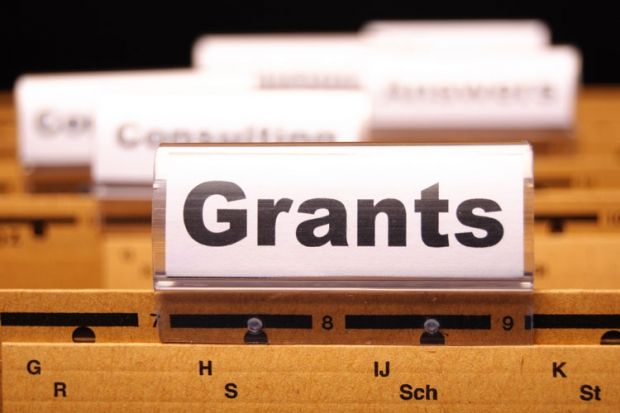National Institute for Health Research
Health Services and Delivery Research Programme
- Award winner: Jan van der Meulen
- Institution: London School of Hygiene and Tropical Medicine, University of London
- Value: £593,386
Surgical care for female urinary incontinence in England
Health Technology Assessment Programme
- Award winner: Philippa Logan
- Institution: University of Nottingham
- Value: £1,835,342
A multi-centre cluster randomised controlled trial to evaluate the Guide to Action Care Home fall-prevention programme in care homes for older people (FinCH)
Leverhulme Trust
Research Fellowships
Sciences
- Award winner: Jonathan Bamber
- Institution: University of Bristol
- Value: £46,270
Global ice mass balance and sea level (GIMBal)
- Award winner: Emma Richardson
- Institution: University College London
- Value: £38,995
Physical impact of storage and display environments on historic film material
- Award winner: James Esler
- Institution: University College London
- Value: £49,997
Climate response theory in the near-equilibrium limit and beyond
- Award winner: Roger Tribe
- Institution: University of Warwick
- Value: £24,440
Analytic structure for the Brownian web and Brownian net
Research Project Grants
Sciences
- Award winner: Rupert Oulton
- Institution: Imperial College London
- Value: £251,539
Quantum nano-plasmonics
- Award winner: Andre Pires da Silva
- Institution: University of Warwick
- Value: £184,110
Gamete-mediated transmission of parental experience
- Award winner: Richard Stephenson
- Institution: University of East Anglia
- Value: £166,029
Asymmetric “click”-synthesis of helicenes
European Research Council
Research grant
- Award winner: Hélène Rey
- Institution: London Business School
- Value: €1,830,866
International finance and monetary policy
In detail
Award winner: Mercedes Maroto-Valer
Institution: Heriot-Watt University
Value: €3 million
Advanced Award: MILEPOST: Micro‑scale processors governing global sustainability
This project will grow “smart rocks” that can “tell” researchers what goes on deep underground. The security of water, food and energy supplies all depend on a clear understanding of how liquids and gases travel through porous rocks in the subsurface. But rocks aren’t great communicators, so Mercedes Maroto-Valer, principal investigator and Robert Buchan chair in the School of Engineering and Physical Sciences at Heriot-Watt University, and her team plan to use 3D‑printing to create porous rocks with embedded micro-sensors to replicate what happens deep underground and collect information not previously attainable. “By 3D‑printing our own core samples, we can decide exactly what sort of rock we wish to study, and implanted micro-sensors will be able to tell us directly, in real time, what is going on as gases and liquids pass through them,” she said. “This fundamental knowledge at such a tiny scale will feed hugely into our understanding of such processes at the large scale and enable us to maximise the success of industries from oil extraction to water safety and the storage of captured CO2.”
Register to continue
Why register?
- Registration is free and only takes a moment
- Once registered, you can read 3 articles a month
- Sign up for our newsletter
Subscribe
Or subscribe for unlimited access to:
- Unlimited access to news, views, insights & reviews
- Digital editions
- Digital access to THE’s university and college rankings analysis
Already registered or a current subscriber?

